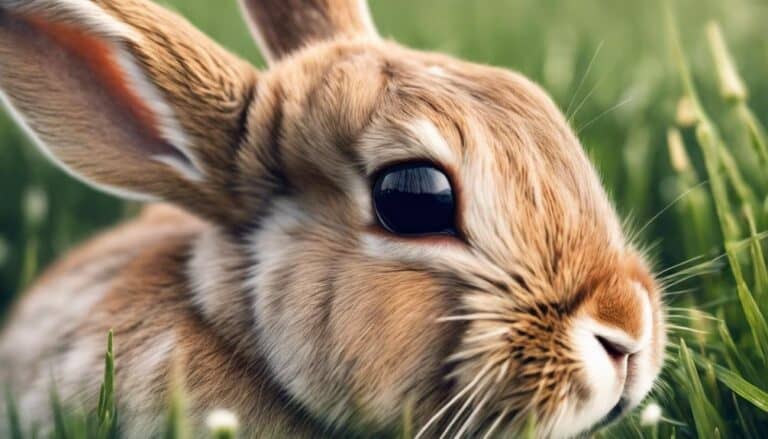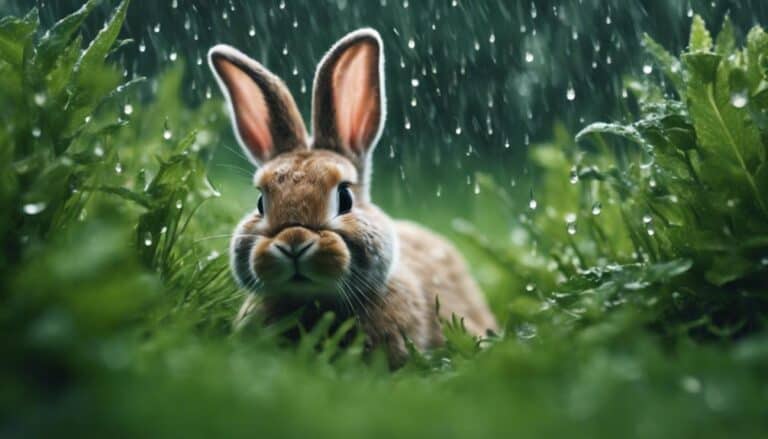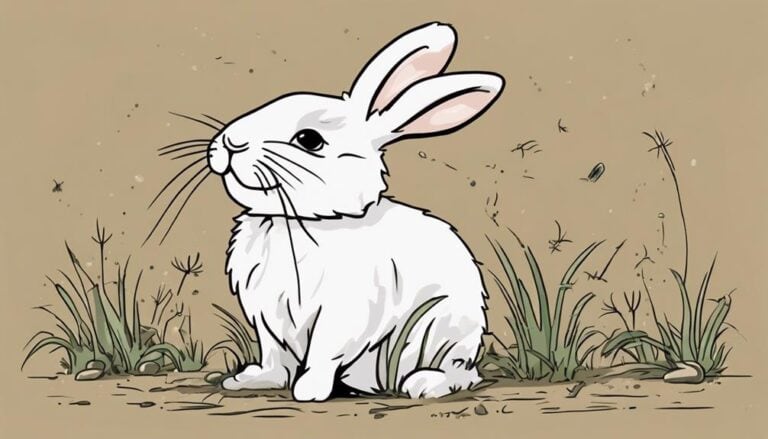If your rabbit becomes pregnant at 12 weeks old, you're probably worried about what's going to happen. The truth is, this is a really tough situation for both the mother and her babies. There are a lot of risks involved, and it's crucial to understand what's at stake.
Rabbits that get pregnant this young are more likely to have health problems. They're still growing themselves, so they might not have the nutrients or energy to support a pregnancy. This can lead to all sorts of complications, from miscarriage to birth defects.
On top of that, young rabbits might not have the maturity to care for their babies properly. They might not know how to nurse them, keep them warm, or protect them from predators. This means the babies are more likely to get sick or injured, which can be devastating.
The most important thing is to make sure your rabbit gets the best care possible. This means working with a veterinarian who has experience with rabbits and providing your rabbit with a safe, healthy environment. You'll need to make sure she's getting the right food, enough water, and plenty of rest.
It's also crucial to monitor your rabbit's health closely. Keep an eye out for any signs of trouble, like vomiting, diarrhea, or lethargy. If you notice anything unusual, get your rabbit to the vet right away.
Unfortunately, even with the best care, the outcome is never guaranteed. Rabbits that get pregnant this young often have a harder time surviving, and their babies might not make it either. But by working with a vet and providing the right care, you can give your rabbit and her babies the best possible chance of survival.
Contents
Key Takeaways
Breeding a 12-week-old rabbit is not a good idea. At this age, rabbits are still growing themselves and their bodies aren't ready to support a pregnancy.
There are a lot of risks involved with breeding a rabbit this young. For example, they're more likely to get eclampsia, which is a serious condition that can be life-threatening. They're also more likely to have a miscarriage or give birth to babies with birth defects.
Young rabbits, including pregnant ones, may struggle to eat and digest their food properly. This can lead to even more health problems.
Because of these risks, the chances of both the mother and the babies surviving are lower. It's important to keep a close eye on your rabbit's health, make sure they're eating well, and consider spaying or neutering them to prevent unwanted breeding and reduce health risks.
Risks of Pregnancy at 12 Weeks
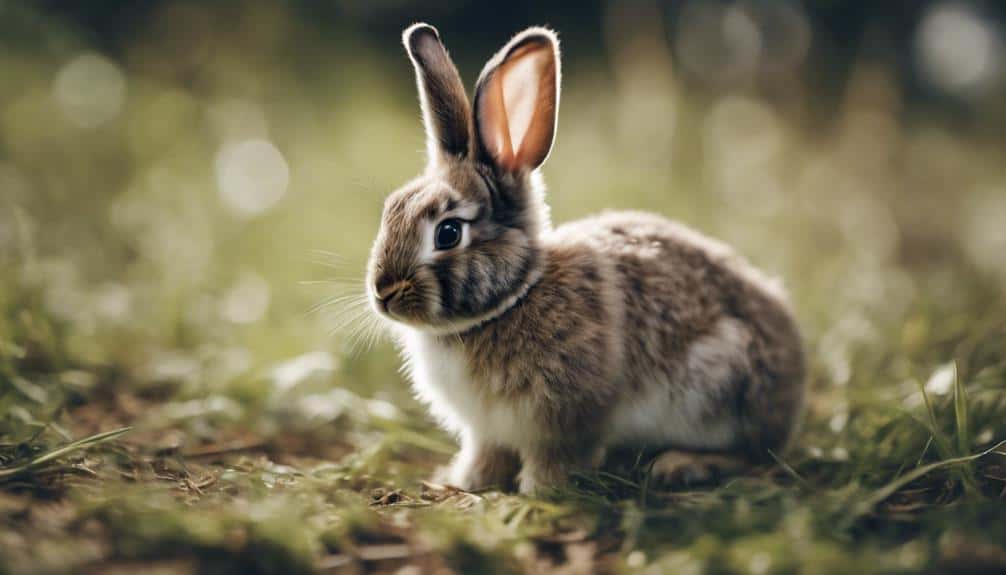
Breeding a 12-week-old rabbit can be risky for both the mother and her babies.
At this age, the rabbit's reproductive system is still developing, making her more prone to health issues. These can include eclampsia, hypertension, and miscarriage, which can be life-threatening if not treated promptly.
Additionally, breeding at this young age may result in birth defects and stillborn babies, causing emotional distress to the owner.
Another challenge a 12-week-old pregnant rabbit faces is that her adult teeth may not be fully developed yet.
This can make eating and digesting food difficult, which can further complicate her pregnancy.
To minimize these risks and ensure a successful pregnancy, it's best to wait until the rabbit is at least 6-7 months old before breeding her.
Health Monitoring for Young Rabbits
Monitoring the health of your young rabbits is crucial to prevent potential complications during their reproductive journey. Since they can get pregnant as early as 12 weeks old, they need special care to ensure a smooth gestation period.
A nutrient-rich diet is essential for their growth and the growth of their kits. This includes high-quality pellets, hay, and fresh vegetables. You should also schedule a vet check-up to confirm the pregnancy and detect any underlying health issues that may affect the doe's ability to carry and nurse her kits.
Keep a close eye on the doe's weight gain, behavior, and nesting habits to identify potential health problems or complications during pregnancy. This proactive approach can help with early intervention and care. If you stay vigilant and seek professional guidance, you can prevent health issues in both the mother and her kits, making for a healthier and safer pregnancy and delivery.
Nutritional Needs for Pregnant Rabbits
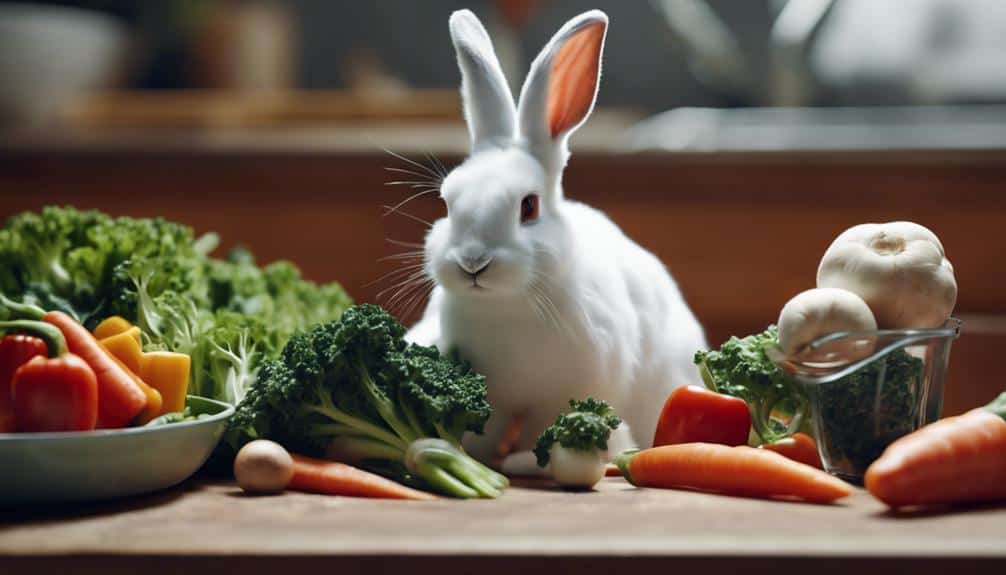
When your rabbit is pregnant, it's crucial that she eats a consistent diet to stay healthy and support the growth of her babies.
A balanced diet provides the essential nutrients needed for fetal development and gets her ready for a successful birth and nursing her kits.
If you don't pay attention to what she's eating, it can cause problems.
Proper Diet During Pregnancy
When it comes to pregnant rabbits, diet plays a crucial role in supporting healthy fetal development and maintaining a healthy digestive system. A diet rich in fiber and low in protein is essential.
During the gestation period, make sure your pregnant doe gets high-quality alfalfa hay, which is packed with fiber, to meet her nutritional needs. It's also important to avoid overfeeding, as this can lead to oversized kits, making birthing more difficult.
Instead, focus on providing a balanced diet that includes fresh veggies to provide essential nutrients for both fetal development and lactation. During lactation, your doe's energy requirements increase significantly.
To support this, provide fortified pellets freely available while maintaining consistent feed quality throughout breeding and pregnancy. By offering a mix of high-quality rabbit pellets, fresh hay, and a variety of veggies daily, you can effectively meet your pregnant rabbit's nutritional demands.
Essential Nutrients for Rabbits
When it comes to pregnant rabbits, providing them with a diet rich in essential nutrients is crucial for supporting their health and the development of their kits.
Female rabbits in their gestation period need specific nutrients like phosphorus and calcium to promote proper fetal growth. That's why a high-quality pellet formulated for pregnant or lactating does is necessary – it provides the necessary protein, calcium, and phosphorus needed for fetal development and milk production.
A diet rich in fiber is also vital for maintaining digestive health and supporting kit growth. You can achieve this by feeding your rabbit timothy hay, alfalfa hay, and dark leafy greens like kale and spinach.
In addition to fiber, omega-3 fatty acids are essential for fetal brain and eye development. You can include a source of omega-3 fatty acids in your rabbit's diet by adding flaxseed or chia seeds.
Fresh vegetables like carrots, bell peppers, and cucumbers are also important for providing necessary vitamins, minerals, and antioxidants for fetal development. However, it's essential to offer them in moderation.
Lastly, make sure your pregnant rabbit always has access to clean, fresh water. This is imperative for keeping them hydrated and supporting kit growth.
Impact of Malnutrition
When your rabbit is pregnant, it's crucial to provide her with a balanced diet that's rich in essential nutrients. This is because malnutrition can have severe consequences during this period. If your rabbit doesn't get enough fiber, protein, and calcium, she may develop health complications like ketoacidosis, which can even lead to death.
To avoid this, make sure your pregnant rabbit has access to a high-quality pellet specifically designed for pregnant rabbits. She should also have plenty of fresh hay, vegetables, and limited fruit. As her pregnancy progresses, her energy needs increase, especially during the final two weeks when the babies are growing rapidly.
If you don't provide your rabbit with adequate nutrition, her babies may be born underweight, have weakened immune systems, and be more likely to die. That's why it's so important to prioritize your pregnant rabbit's nutritional needs. This will help ensure a healthy pregnancy and successful delivery.
Importance of Clean Environment
Maintaining a clean environment during rabbit pregnancy is super important for the health and well-being of both the mom and her babies. Female rabbits are pregnant for around 28-31 days, and during this time, it's crucial to provide a sanitary living space.
One key thing is to provide a suitable nest box for the pregnant rabbit. This nest box should have clean, soft bedding to create a comfy and hygienic space for the mom to give birth and care for her babies.
Keeping the surrounding area of the nest box tidy is also essential. Regularly cleaning it can help prevent issues like false pregnancy or unwanted pregnancy. By doing so, you'll ensure the mom and babies stay healthy and thrive.
Considerations for Young Offspring
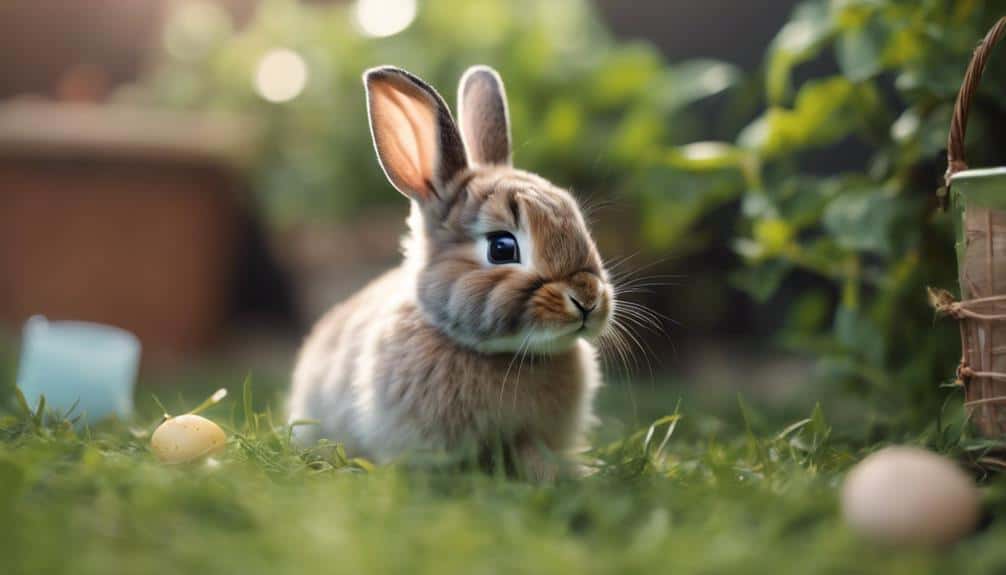
When you're thinking about breeding young rabbits, it's really important to be aware of the potential risks and challenges that come with it.
For one, young female rabbits mightn't be physically or emotionally ready to be mothers. This can lead to complications during pregnancy and birth. Breeding rabbits at a young age can also result in higher mortality rates for both the mother rabbit and the baby rabbits.
Additionally, there's a higher risk of stillbirths, weak baby rabbits, and lower survival rates for the offspring born to young rabbits. Young does may not have fully developed maternal instincts, which could result in them neglecting or rejecting their kits.
It's really important to wait until rabbits are at least 6-8 months old before breeding them. This ensures they're mature enough to handle the demands of pregnancy and motherhood. By waiting, you can help reduce the risks and promote a healthier outcome for both the mother and her offspring.
Benefits of Spaying Your Rabbit
Spaying your rabbit can have a big impact on their health and well-being.
For one, it prevents uterine cancer, which is a common problem in female rabbits.
But that's not all. Spaying also helps reduce pet overpopulation in your community.
By choosing this procedure, you're not only helping your rabbit, but also contributing to the welfare of other animals in need.
Spaying eliminates the risk of life-threatening complications that can come with pregnancy.
This means your rabbit will be healthier and happier overall.
It's a simple step that can make a big difference in your pet's life.
Spaying Prevents Health Risks
To protect your rabbit from potential health risks, consider the benefits of having them spayed. It's crucial to understand the advantages of spaying your female rabbit, especially when they're sexually mature.
Spaying reduces the risk of uterine, ovarian, and mammary cancers in female rabbits. This is a significant advantage, as these types of cancers can be devastating for your pet.
Another important benefit of spaying is that it helps prevent life-threatening uterine infections, such as pyometra. These infections can be very serious and even life-threatening if left untreated.
Spaying also has a positive impact on your rabbit's behavior. Spayed rabbits are less likely to exhibit territorial and aggressive behaviors. This makes them easier to care for and can improve their overall quality of life.
Reduces Overpopulation Concerns
Reducing the overpopulation of rabbits can be effectively achieved through the simple yet impactful act of spaying your pet. Female rabbits have a short gestation period of about 28-31 days and can become pregnant again within hours of giving birth. Plus, they can also experience a false pregnancy, showing signs of being pregnant without actually carrying offspring. This rapid reproductive cycle contributes significantly to the rising rabbit population, making spaying an essential step for responsible pet ownership. Additionally, many owners may be unaware of how long unspayed rabbits live; without spaying, they can potentially face health issues, such as uterine cancer, which can significantly shorten their lifespan. By spaying your pet, not only do you help reduce overpopulation, but you also promote a healthier life and a more manageable pet experience.
By spaying your rabbit, you can avoid unwanted litters and the associated risks to the mother's health.
It's perfectly normal to have concerns about overpopulation, but spaying your rabbit is a proactive step to address this issue.
Spaying not only helps reduce overpopulation concerns but also provides the best care for your pet.
By preventing unplanned pregnancies, you can guarantee that your rabbit lives a healthy and happy life without the stress of constant breeding cycles.
Take the responsible route and spay your rabbit to contribute to the well-being of both your pet and the rabbit population as a whole.
Enhances Rabbit's Well-Being
Spaying your rabbit is a crucial step in enhancing their overall well-being. When thinking about your rabbit's reproductive health, it's essential to consider their gestation period, potential risks of giving birth, and providing a safe environment for them.
So, what're the benefits of spaying your rabbit? For starters, it prevents unwanted litters. This is especially important if you're not prepared to care for multiple rabbits.
Spaying also reduces the risk of certain cancers, like uterine cancer, which can greatly improve your rabbit's quality of life.
In addition to these health benefits, spaying can also improve your rabbit's behavior. It can reduce aggressive tendencies, making them more docile and easier to handle. This is especially important if you have children or other pets in the household.
Ultimately, spaying your rabbit is a crucial step in ensuring their overall health and well-being. By doing so, you can lower the risk of serious health issues and give your pet a longer, happier life.
Conclusion
So you're wondering if your rabbit can survive if she's pregnant at 12 weeks. The thing is, 12 weeks is quite late in a rabbit's pregnancy, and it's crucial that you take extra care of her at this stage.
Firstly, you need to keep a close eye on her health. Rabbits can be prone to health issues during pregnancy, especially if they're not getting the right nutrients. Make sure she's eating a balanced diet that's rich in fiber, and consult with your vet if you're unsure about what to feed her.
A clean environment is also vital for your rabbit's health. Make sure her cage is clean, and change her bedding regularly to prevent the buildup of bacteria and germs.
It's also worth considering spaying your rabbit to prevent future pregnancies. Rabbits can breed frequently, and this can put a lot of strain on their bodies. Spaying can help reduce the risk of health problems and make your rabbit's life easier.
Remember, your rabbit's survival and the survival of her babies depend on the care you provide. So, take it seriously, and do everything you can to give her the best possible chance of a healthy pregnancy.


